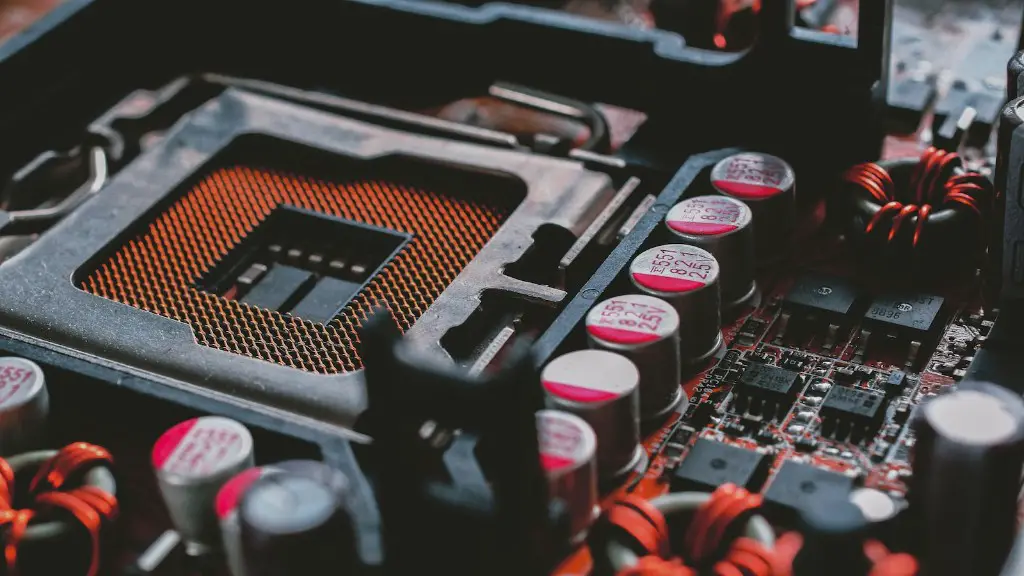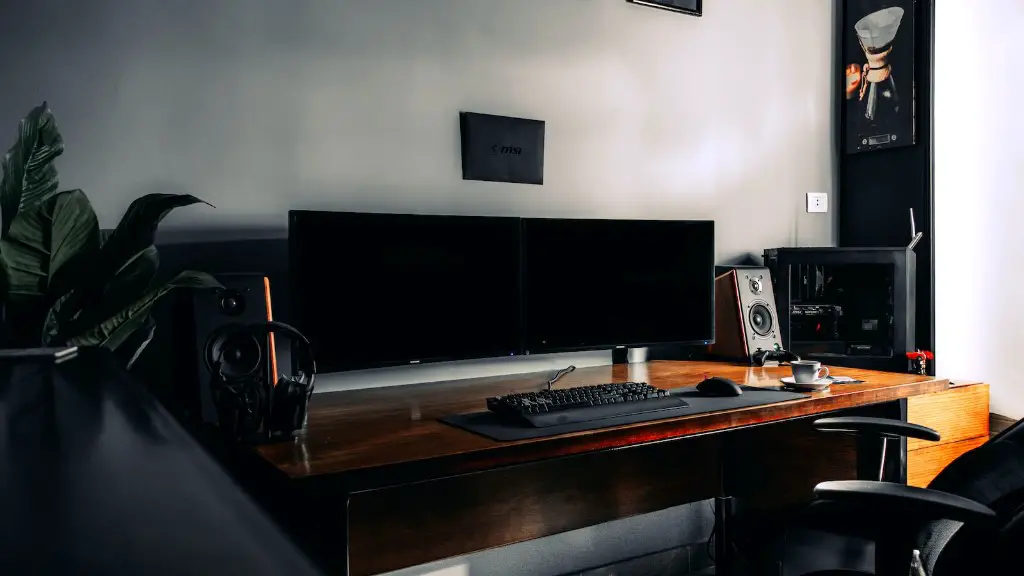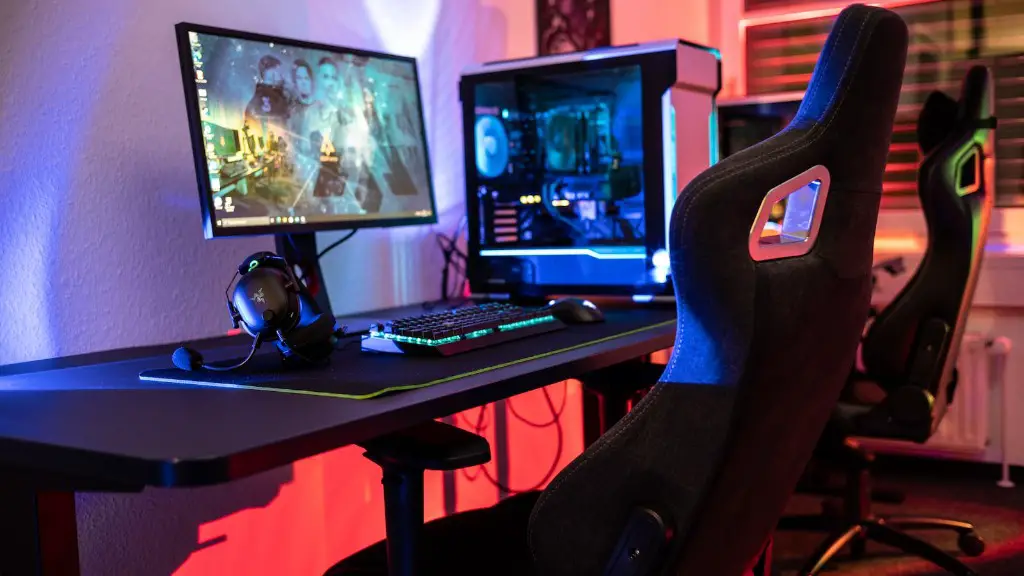If you’re a hardcore gamer or even an enthusiast, you know that buying a gaming PC is one of the most important decisions to make. Depending on your level of commitment to gaming, you’ll need to consider a great many factors when deciding which gaming PC to invest in.
Firstly, your gaming PC should be capable of running the specific games you plan on playing. If you’re a fan of complex, graphically-intensive games, for instance, you’ll need a powerful gaming PC that is able to handle these games. Otherwise, you risk seeing your PC unable to handle the computing demands and potentially causing your games to lag or freeze.
Worse still, you’ll need to ensure your gaming PC is also equipped with the right components. A great graphics card is key to any gamer’s setup, and it’s important that your gaming PC is equipped with one that’s capable of supporting the types of games you intend to play.
On top of that, a good gaming PC should have plenty of RAM and storage space as well. Depending on its age and model, you’ll want to make sure your gaming PC is fit with at least 8 to 16GBs of RAM and a solid-state drive with a minimum of 500GB of storage space.
What’s more, the layout and design of your gaming PC should also offer you good airflow and temperature management. The key here is to ensure the components within your PC are able to dissipate heat quickly and be cool enough to function properly.
Last but not least, it’s important to consider how upgradable your gaming PC is. Is the model you’re buying capable of taking on new parts, or does it have limited upgradability? Whichever way, you’ll want to make sure your gaming PC can accommodate current and future components to meet your gaming needs.
Graphics Card
The graphics card is arguably the most important piece of equipment for any gaming PC, given it’s the centerpiece of most gaming rigs. With that being said, there are now several options on the market, from mid-range to high-end models. When you’re shopping around for a gaming PC, you’ll want to weigh the pros and cons of the models available and pick one that best fits the types of games you intend to play.
If you plan on playing graphically-intensive titles, you’ll want a more powerful graphics card that can handle the demands of such games. An NVIDIA RTX 2080 or higher, for instance, is capable of running such games with high detail and graphic settings.
On the other hand, if you’re looking for something more affordable, a more mid-tier graphics card such as a GTX 1050 will suffice. The latter might not handle graphically-intensive games as well, but it’ll still do a good job of running many games with a decent level of detail.
Either way, if a gaming PC you’re eyeing doesn’t come with a graphics card you’re satisfied with, you can always upgrade it and install a better one.
At the same time, you should also take into account other factors such as the graphics card’s memory, speed, clock speed and cooling design, as these can all play into the performance of your gaming experience.
RAM
Next on the list is the RAM (Random Access Memory). The RAM’s job is to temporarily store data when you’re gaming, with a higher amount of RAM typically equating to better gaming performance.
When choosing a gaming PC, you should look for at least 8 to 16GBs of RAM, depending on the types of games you intend to play. As such, it is necessary to select a gaming PC with the same amount of RAM or more.
It is also important to remember that most high-end RAM, such as DDR4 or DDR5, can be freely overclocked for better performance. Just bear in mind that a higher clock speed may cause the RAM to consume more power.
Finally, you should also choose a RAM kit from a reputable brand such as Corsair or G.Skill, as these come with tight timings and offer improved gaming performance over typical RAM.
Processor
The processor is another key component in any gaming PC, as it is tasked with crunching complicated game data with ease. As such, you should aim for a gaming PC with a processor no fewer than 8 cores with a minimum of 3.5GHz per core.
That said, while gaming performance is an important factor, there are other considerations to make when selecting a processor. Depending on your budget, there are processors that offer more cores and clock speeds such as the Ryzen 5 or Ryzen 7.
At the same time, there are also options such as Intel’s Core i9-9900K that provide a good mix of cores and clock speed, making them ideal for gaming enthusiasts.
In any case, the key here is to look for a gaming PC with a processor that is well-balanced and powerful enough to handle your gaming needs.
Cooling
To avoid any potential issues such as component failure or component degradation, you should also make sure your gaming PC is well-equipped with cooling options.
There are two main types of cooling options typically found on gaming PCs: air cooling and liquid cooling. Air cooling involves using fans to dissipate heat quickly, whereas liquid cooling is done using a cooling liquid that passes through the processor and other components.
In either case, your gaming PC should be equipped with enough cooling to keep your components running cool. This is critical in keeping your gaming PC from overheating, which could potentially damage your parts in the long run.
When shopping for a gaming PC, look for models that come with air or liquid cooling capabilities or those that have ample space for additional cooling components.
Power Supply Unit
Last but not least, your gaming PC should also be equipped with a reliable power supply unit (PSU). Power supply units can be found in a variety of wattages and types, with most gaming PCs typically coming with at least a 500W to 600W PSU.
When shopping around, be sure to check the specifications of the PSU to make sure it fits with the components of your gaming PC. For instance, you’ll want to ensure that the power cables are able to support the graphics card and other components.
On top of that, you’ll also want to look for a PSU with multiple PCI-E power connectors and that it has a certified efficiency rating of at least 80%. This helps to ensure you’re getting a power supply unit that’s reliable, safe and efficient enough to handle all the components of your gaming PC.
Price
Finally, it’s important to take into account the overall cost of your gaming PC. Of course, you should look for a gaming PC that fits within your budget, but you should also ensure you’re getting good value for your money.
Consider the overall specification of the gaming PC and how it fits with your needs. In particular, look at aspects such as the graphics card, processor, RAM, cooling and PSU. Do these components fit the types of games you want to play, and are they future-proof enough to meet your gaming needs in the years to come?
Overall, there are a great many factors to consider when selecting the right gaming PC. Be sure to take the time to research your options and pick one that best fits your gaming needs.



